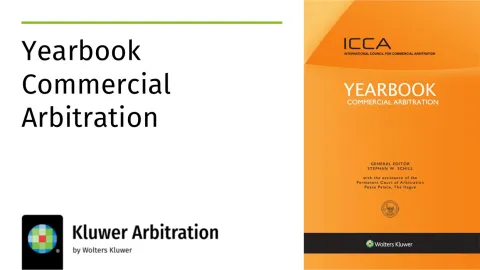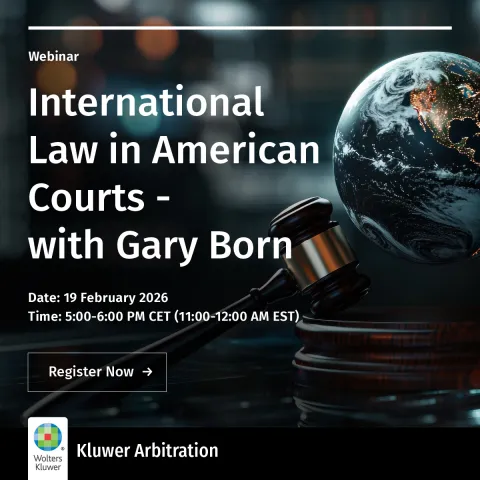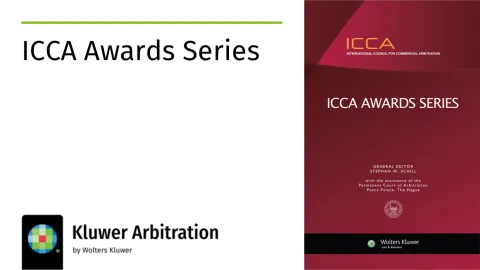SIAC Symposium 2025 Part 2: Navigating Realities for Arbitration Users in the Global Sphere
October 9, 2025
The afternoon session of the SIAC Symposium 2025 began with a fireside chat examining ASEAN’s evolving role in the global arbitration landscape. This was followed by a panel discussion with in-house counsel sharing practical insights on the “pain points” in international arbitration. The day concluded with a lively debate on the controversy of party-nominated and party-appointed arbitrators, an issue that continues to generate discourse within the arbitration community.
Fireside Chat: Panoramas and Perspectives—The Global State of Play
Mr Benson Lim (Managing Partner, Sixty Three Law Corporation) and Ms Jennifer Lim (Independent Advocate, Duxton Hill Chambers (Singapore Group Practice)) moderated the fireside chat as Co-Chairs of the YSIAC. The conversation brought together Ambassador Ong Keng Yong (Executive Deputy Chairman, S. Rajaratnam School of International Studies (RSIS), Nanyang Technological University, Singapore) and Mr Ashok Mirpuri (Head, International Policy & Governance, Temasek International Pte Ltd).
Ambassador Ong opened the session by sharing that Timor-Leste is expected to become the 11th member of ASEAN. He reflected on the challenges ASEAN is facing in presenting a unified front, particularly in addressing the ongoing crisis in Myanmar. The diversity of political systems, legal frameworks, and development levels across member states continues to complicate regional collaboration.
Mr Ashok analyzed current key geopolitical shifts. He discussed the evolving posture of the United States, noting a growing sense of isolationism and a perception that the U.S.’s global contributions have not been reciprocated. This has led to a reassessment of its international engagement strategy. He also examined the complex dynamics of the U.S.–China relationship, highlighting China’s emergence as a global power and the tensions arising from differing expectations around international norms and trade systems.
The conversation then turned to the role of ASEAN and Singapore in navigating these global developments. Both speakers emphasized ASEAN’s potential to attract investment through regional cooperation but acknowledged that its effectiveness is often constrained by the varying levels of alignment with rules-based frameworks among member states, as well as linguistic and cultural diversity. These factors make it difficult to adopt a universal approach for policy and governance.
The speakers underscored the importance of understanding the personalities involved in ASEAN member states and responding to the unique needs and motivations of each stakeholder to achieving meaningful outcomes.
Panel Discussion: Exploring “Pain Points” in International Arbitration with In-House Counsel
Moderated by Mr Vivekananda Neelakantan (Registrar, SIAC) and Mr Ramesh Selvaraj (Partner & Deputy Head, International Arbitration, Allen & Gledhill LLP), this engaging panel brought together four experienced in-house counsel to share their practical experience as users of international arbitration.
The panel featured Mr Haiyang Cao (Former General Counsel, Syngenta Group China), Dr Christian Greissinger (General Counsel ASEAN Australia, Siemens), Ms Rachel Yee (Board Member, Singapore Corporate Counsel Association), and Ms Rashna Mistry (General Counsel, Legal, Contracts & Company Secretary, Tata Projects).
The panel discussion could be summarized into three stages in the life cycle of an arbitration. It began with a focus on issues before arbitration, highlighting the importance of well-drafted dispute resolution clauses. The panel cautioned against treating these as “midnight clauses” negotiated at the last minute, noting that there is no one-size-fits-all standard clause. Conducting due diligence on counterparties, both before entering into contracts and prior to initiating arbitration, is essential to assess the commercial risks involved and the likelihood of recovery post-arbitration. The panel also discussed the importance of adopting appropriate procedural rules and selecting the right arbitral institution for the dispute to achieve efficiency throughout the entire process.
Managing internal management’s expectations was another key topic discussed. The panel highlighted that in reality, arbitration may involve longer timelines than anticipated, depending on factors such as the complexity of the case and prolonged hearings. Hence, legal teams must proactively communicate these nuances to management to avoid misalignment.
Multi-tiered dispute resolution clauses were discussed as useful tools, especially in complex commercial relationships. Mechanisms like mediation can play a valuable role in resolving issues and also allow parties more time to strategize.
The importance of evidence gathering and selecting the right counsel was also emphasized. Both counsel and arbitrators were encouraged to actively contribute to maintaining procedural efficiency throughout the arbitration process.
Confidentiality emerged as a key focal point during the discussion. The panel explored whether arbitral awards should be made public and reaffirmed that confidentiality remains a core value for users of arbitration. The speakers also emphasized the importance of a well-crafted award which not only enhances enforceability but also maintains arbitration’s appeal for users.
This session offered a valuable glimpse into the strategic thinking of in-house counsel, throughout the arbitration life cycle.
Debate: This House Believes that Party-Nominated and Party-Appointed Arbitrators Enhance the Legitimacy and Attraction of International Arbitration as the Preferred Method of Dispute Resolution
The symposium took a different turn with its final session—a debate that featured compelling arguments from both the proposition and the opposition on the controversy of party-nominated and party-appointed arbitrators.
Mr Alastair Henderson (Member, SIAC Court of Arbitration; Partner, Herbert Smith Freehills Kramer) acted as a moderator and judge. The other judges were Prof Hong-Sik (Justin) Chung (Deputy Minister of International Legal Affairs, Korean Ministry of Justice), Ms Lara Hammoud (Member, SIAC Court of Arbitration; Independent Arbitrator; Arbitra International), and Mr Mohit Saraf (Founder and Managing Partner, Saraf and Partners).
Representing the proposition, Ms Sae Youn Kim (Member, SIAC Court of Arbitration; Senior Partner, Kim & Chang) and Mr Nakul Dewan KC (Barrister, Twenty Essex) defended the principle of party autonomy as a cornerstone of arbitration. They argued that the ability to nominate arbitrators is not only a default mechanism but a fundamental reason why parties choose arbitration. Nomination reflects confidence in the arbitrator’s integrity and expertise. Moreover, party-appointed arbitrators are subject to intense scrutiny, which acts as a natural safeguard against potential bias. The reputation of arbitrators plays a critical role, as those seeking future appointments are unlikely to compromise their impartiality, knowing their conduct will be closely observed.
On the opposition, Mr Vijayendra Pratap Singh (Member, SIAC Court of Arbitration; Senior Partner and Head of Dispute Resolution, AZB & Partners) and Ms Anisha Sud (Partner, King & Spalding) challenged the notion that party autonomy should be absolute. They emphasized the importance of the "three I's"—integrity, impartiality, and independence and the "three E's"—efficiency, economy, and effectiveness as pillars of a fair arbitration process. While the importance of integrity in arbitral proceedings is widely accepted, they argued that integrity in the appointment of arbitrators is equally critical. The opposition cited empirical evidence showing that unilateral appointments can influence arbitrator behavior, often in subtle ways that existing safeguards are not designed to detect. The present mechanisms in place primarily address overt conflicts, leaving room for unconscious bias to persist. The debaters warned that arbitrators may, consciously or unconsciously, lean toward the party that appointed them, undermining the fairness of the process.
The judges offered thoughtful reflections following the debate, acknowledging the complexity of balancing party autonomy with impartiality in arbitral appointments. The judges emphasized that the right to nominate arbitrators is a foundational pillar of the arbitration process which should not be removed.
However, the judges also considered that institutional appointments, while designed to promote neutrality, are not immune to criticism, particularly regarding how arbitrator lists are compiled and the potential for lobbying. On the other hand, although party nominations or appointments are rooted in trust, they may raise concerns about unconscious bias.
To address these concerns, Prof Chung proposed that arbitrator lists should be simple, transparent, and may be generated through an AI-assisted process based on criteria agreed upon by both parties. Initial selection could be conducted using anonymous profiles, with AI performing a preliminary filter and human decision-makers making the final appointment. This approach aims to preserve party autonomy while enhancing fairness and objectivity.
Ultimately, the motion was carried, with the majority of judges ruling in favor of party-appointed arbitrators. The debate concluded with a thought-provoking exchange on whether the arbitration community should re-evaluate the balance between autonomy and impartiality, especially in light of evolving expectations around transparency, neutrality, and trust in the arbitral process.
Closing Remarks and Reflections
In his closing remarks, Mr Neelakantan provided a summary of the day’s discussions and key takeaways from the SIAC Symposium 2025.
He highlighted the launch of the SIAC Restructuring and Insolvency Arbitration Protocol, describing it as a first-of-its-kind initiative in the arbitration community. He also emphasized the establishment of a new institute focusing on ethics in arbitration, reinforcing SIAC’s commitment to integrity and professional standards. More details of these developments can be found in this post covering the morning sessions of the symposium.
The afternoon sessions of the SIAC Symposium 2025 demonstrated a compelling continuation of the morning’s momentum, deepening the discourse around international arbitration’s evolving landscape. The fireside chat provided a candid glimpse into ASEAN’s geopolitical complexities, while the in-house counsel panel offered valuable insight into the expectations of arbitration users. The debate added a fun and lively twist to the otherwise serious topic of party-appointed arbitrators, sparking ideas like AI-assisted selection and reaffirming the importance of balancing autonomy and impartiality in arbitration. These sessions marked a well-rounded and engaging conclusion to the SIAC Symposium 2025.
You may also like










